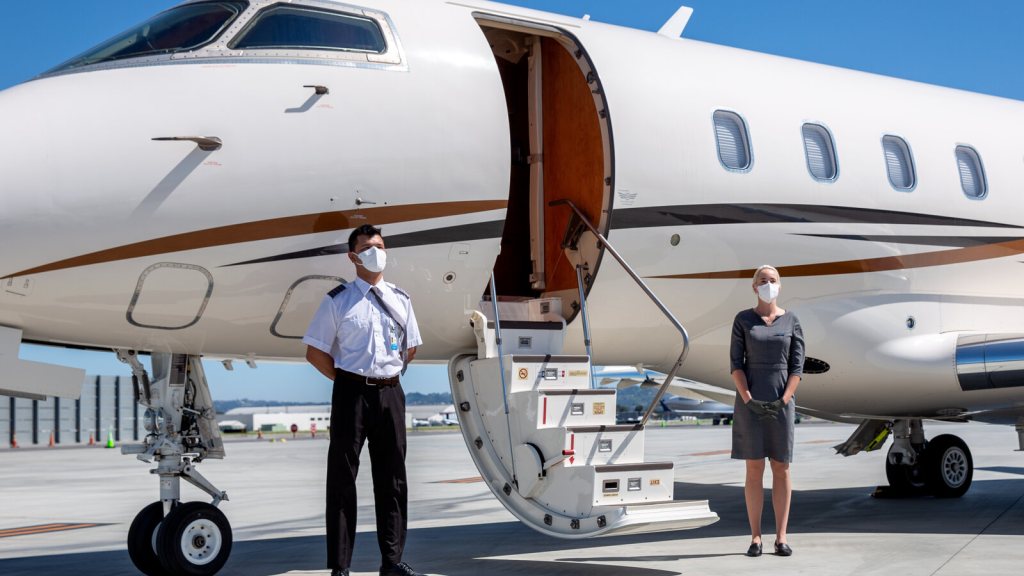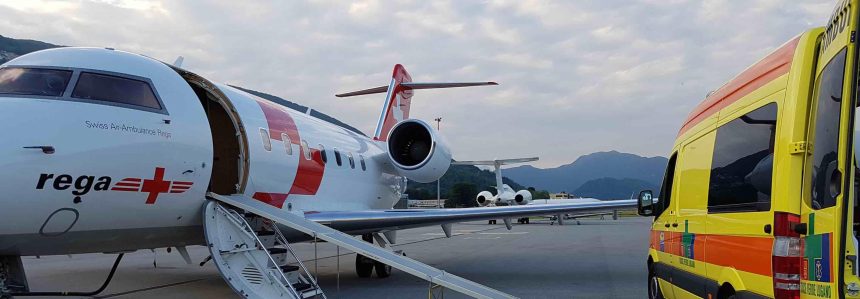In the realm of medical emergencies, time is of the essence, and rapid transportation can be a matter of life or death. Private flight services have emerged as a crucial resource in providing swift transportation for critical patients.
When faced with a medical emergency, time is of the essence, and one viable solution is to quickly book a charter flight, recognizing the crucial role that private flight plays in providing rapid transportation for critical patients. Let’s read this article that examines the advantages, challenges, and opportunities associated with the role of private flights in medical emergencies, with a specific focus on their relevance to the Australian context.

Advantages of Private Flight Services
Private flight services offer several advantages in the context of medical emergencies, revolutionizing the transportation of critical patients and enhancing the overall quality of care. The following are the key advantages of private flight services:
1. Reduced Travel Time and Accessibility: Private flight services excel in minimizing travel time for patients requiring urgent medical attention. By utilizing smaller airports and more direct flight paths, private flights can bypass the congestion and delays often experienced by commercial airlines. This enhanced accessibility ensures that patients can reach specialized medical facilities promptly, where time is of the essence in providing life-saving treatments. The ability to swiftly transport patients to the appropriate medical resources can significantly improve their chances of survival and recovery.
2. Enhanced Patient Comfort and Care: Private flights prioritize patient comfort and care during medical emergencies. The spacious and well-equipped cabins provide an optimal environment for medical professionals to administer necessary treatments mid-flight, ensuring continuous care throughout the journey. Additionally, the personalized attention and privacy offered by private flight services can alleviate stress and anxiety for patients and their families during challenging times. The ability to receive medical care in a comfortable and supportive environment contributes to improved patient outcomes and overall well-being.
3. Specialized Medical Equipment and Expertise: Private flight services have the capacity to accommodate specialized medical equipment on board. This includes advanced life support systems, mobile intensive care units, telemedicine capabilities, and real-time monitoring systems. These technological advancements enable medical professionals to deliver high-quality care during the flight, ensuring that patients’ medical needs are met throughout the journey. Having access to state-of-the-art medical equipment and expertise on board private flights enhances the overall safety and well-being of patients.
4. Flexibility and Customization: Private flight services offer flexibility and customization options tailored to the specific needs of medical emergencies. They can be rapidly mobilized to transport patients from remote or inaccessible areas to medical facilities. Private flights can also accommodate specific requirements, such as the need for isolation or specialized medical procedures during transportation. The ability to customize the flight experience according to the patient’s medical condition contributes to a higher level of care and treatment.
5. Privacy and Confidentiality: Private flight services provide a high level of privacy and confidentiality, which is particularly important in medical emergencies. Patients and their families can travel discreetly, away from the public eye, preserving their dignity and protecting their personal information. This confidentiality can be crucial in sensitive medical situations and ensures that patients feel respected and secure during the transportation process.
Challenges Faced by Private Flight Providers
Private flight providers face several challenges when it comes to facilitating medical emergency flights. These challenges include:
1. Regulatory Considerations and Coordination: Private flight operators must navigate various regulatory requirements, including compliance with aviation safety standards, licensing, and adherence to airspace regulations. Coordinating with healthcare institutions, emergency response systems, and regulatory bodies is crucial to ensure seamless integration and efficient response during medical emergencies.
2. Cost Implications and Affordability: Operating and maintaining private aircraft involves significant expenses, including crew salaries, fuel costs, aircraft maintenance, and insurance. These costs contribute to higher service charges, making private flight services less accessible to a broader population. Striking a balance between providing quality care and ensuring affordability is a challenge that private flight providers must address.
3. 24/7 Availability and Response Time: Medical emergencies can occur at any time, requiring private flight services to be available round-the-clock. Maintaining a sufficient fleet of aircraft, trained crew members, and support staff to respond promptly to emergency requests poses logistical challenges. Ensuring efficient communication and coordination between private flight operators and medical facilities is essential to minimize response time and ensure timely transportation.
4. Weather and Operational Constraints: Private flight operations are subject to weather conditions and operational constraints. Adverse weather conditions, airspace restrictions, and airport availability can pose challenges in providing uninterrupted services during medical emergencies. Flexibility in adapting flight routes and maintaining a robust communication system to monitor and address operational constraints is crucial for private flight providers.
Opportunities in Private Flight Services for Medical Emergencies
There are several opportunities in private flight services for medical emergencies that can further enhance their effectiveness:
Growth of Air Ambulance Services
The growth of specialized air ambulance services presents a significant opportunity in private flight services for medical emergencies. Dedicated air ambulance providers equipped with state-of-the-art medical equipment and staffed by trained medical professionals ensure a high standard of care during transportation. Collaborations between private flight operators, healthcare institutions, and insurance providers can further enhance the availability and accessibility of air ambulance services.
Advancements in Medical Technologies on Board
Technological advancements in the medical field have enabled the installation of advanced life support systems and medical equipment on private aircraft. Innovations such as mobile intensive care units, telemedicine capabilities, and real-time monitoring systems have revolutionized the quality of care that can be provided during medical flights. Further investment in research and development can drive continuous improvement in these technologies, ensuring optimal care for patients in transit.
In the final note, private flight services have emerged as a vital resource in medical emergencies, offering advantages such as reduced travel time, enhanced patient comfort, and specialized medical equipment. However, challenges related to regulatory considerations, cost implications, and operational logistics need to be addressed. Collaborations between private flight operators, healthcare institutions, and regulatory bodies can optimize the use of private flights, ensuring timely access to critical care and saving lives. With ongoing advancements and strategic collaborations, private flight services will continue to play a crucial role in medical emergencies.














